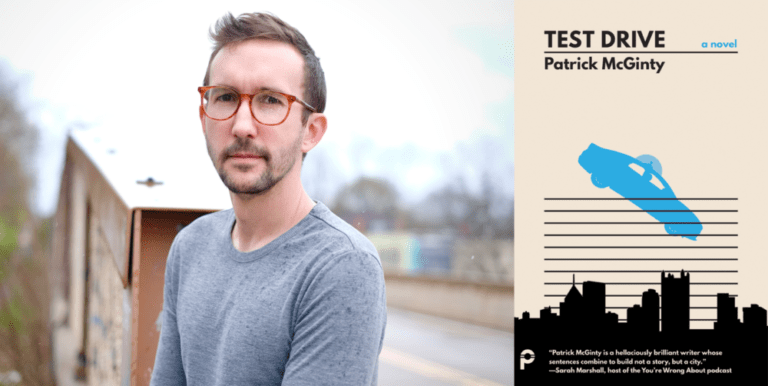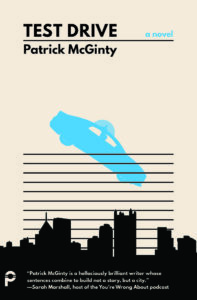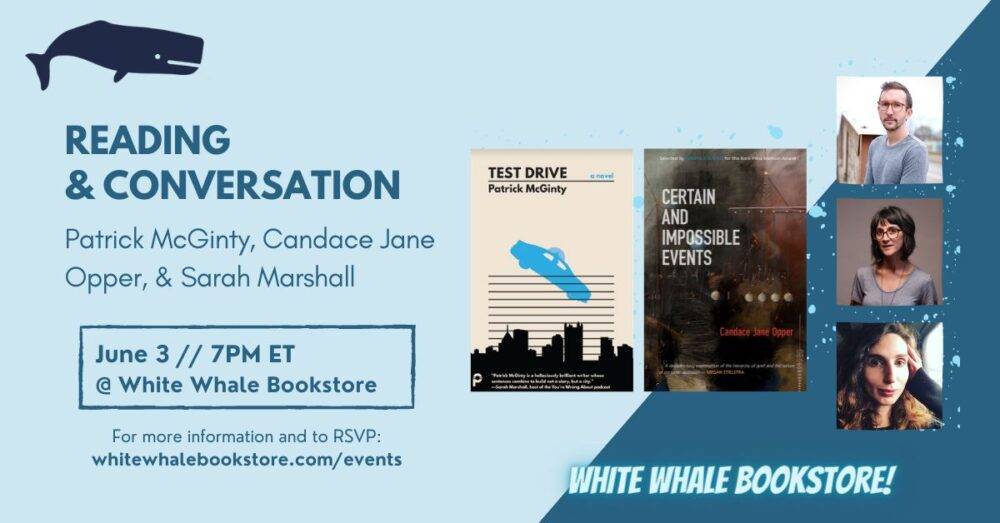From the Publisher: “Janice ‘Pegs’ Pegula, a mechanic and test driver at a driverless car company in 2030 Pittsburgh, does not steal from her employer. Not necessarily. She skims—a tire here, a battery there, reselling parts from the supply room to save for a higher, drier apartment. Surge season is about to hit, bringing with it hurricane-like winds, public protests for better surge pay, and desperate modifications to driverless prototypes by companies who see the climate emergency as a final chance to prove their social purpose. Dodging delivery drones on her test drives and tech bros on her maintenance shifts, Pegs struggles to keep everyone happy—bosses and family, the mechanic buying her parts, and her expanding crew of fellow skimmers. When the group decides to acquire and strip a full driverless prototype, driving—and life—gets even more risky in this first fictional work to dramatize the existential crises faced by individuals working in the driverless car sector.”
More info About the Author: Patrick McGinty’s fiction and essays have appeared in publications including ZYZZYVA, The Baffler, Bright Wall/Dark Room, and The New Inquiry, among others. His Sunday book reviews regularly appear in The Pittsburgh Post-Gazette, and he teaches in the English Department at Slippery Rock University. He lives in Pittsburgh, Pennsylvania, with his wife, Candace Jane Opper, and their son.
McGinty will be launching Test Drive: A Novel at White Whale Books on June 3rd with Candace Jane Opper and Sarah Marshall!
Book Launch “Patrick McGinty is a hellaciously brilliant writer whose sentences combine to build not a story, but a city.” —Sarah Marshall, host of the You’re Wrong About podcast
“Test Drive is very strange and very, very good. The prose is airtight, surprising, funny—often revelatory. The conceit is perfect, and perfectly executed. Patrick McGinty is far more than a promising young writer. He’s someone whose thoughts and dreams a good many readers will, with any luck, be seeking out for years to come.” —Tom Bissell, author of Creative Types: And Other Stories
“[A] gripping and deeply insightful story that captures some of the most important themes related to autonomous vehicles and their human and environmental context…” —Edward Niedermeyer, author of Ludicrous: The Unvarnished Story of Tesla Motors
When my wife and I moved to the Morningside neighborhood of Pittsburgh in 2016, I spent a full day cleaning out all this junk left by the previous owners in the garage. I was trying to figure out what to do with these Tupperware containers filled with ancient white paint when suddenly a driverless car from one of the local companies rolled past the open garage door and down the incredibly potholed alley. I remember thinking: ‘wow, those things have reached the point where they’re mapping alleys as busted as mine.’ I knew that Pittsburgh had become something of a hub for the driverless car sector, but for whatever reason, witnessing that car in the alley was a bit of a wake-up call.
Some context: my mom was at one point one of the higher ranking female employees in Allegheny County. By being incredibly smart and just a relentlessly, insanely, legendarily hard worker, she achieved a pretty high rank at a tech and manufacturing company. But: she became pregnant with my young triplet siblings. The triplets were born very premature, and her maternity leave was rather complicated, and, long story short, her position at her company was filled and they moved on without her.
 So, when I am say, in an alley, and I see that there’s some sort of new technological advancement that is quite literally pressing up against my property, the ‘wake up’ I’m referring to isn’t necessarily ‘oh geez, how is this going to harm me physically?’ It certainly isn’t ‘oh neat, how can I benefit from this new technology?’ The ‘wake up’ is, I think, something like ‘oh, this new thing is moving fast, and when things or companies or technologies move fast, people get left behind and/or trampled, so I better figure this thing out as fast as possible so that the stakes are as clear as possible, both to myself and to others.’
So, when I am say, in an alley, and I see that there’s some sort of new technological advancement that is quite literally pressing up against my property, the ‘wake up’ I’m referring to isn’t necessarily ‘oh geez, how is this going to harm me physically?’ It certainly isn’t ‘oh neat, how can I benefit from this new technology?’ The ‘wake up’ is, I think, something like ‘oh, this new thing is moving fast, and when things or companies or technologies move fast, people get left behind and/or trampled, so I better figure this thing out as fast as possible so that the stakes are as clear as possible, both to myself and to others.’
Have your interests and writing always gravitated toward tech?
Not at all. I held off on getting a smartphone way past virtually everyone I know. I pay debts via check rather regularly. I could continue in this vein, but it would probably just look embarrassing.
So without a technical background in AI or even cars, how did you prepare to write a novel about this complex subject?
Well, I read. A lot. I read everything about driverless cars and wrote about it as I was reading. I talked to as many really smart people as I could. I even ended up teaching a course to first-year students about driverless cars, then I adapted that course into some national curriculum for other educators to follow. All during this time, I was drafting and revising Test Drive, pouring new observations and ideas into it as I learned more about the driverless car sector.
At a certain point, I had to make the decision to stop writing about the present day–it just became somewhat pointless to try ad keep the novel ‘current’ when ‘current’ was always changing. So, the story is set in a fictionalized but I think quite plausible 2030 Pittsburgh, where driverless cars still aren’t fully licensed. Most companies in the novel have pivoted their business models and technology so that the driverless cars are better equipped than a human driver to operate in the novel’s extreme climate conditions.
Who do you envision as your ideal reader?
Will you keep writing about driverless cars? Or is this it?
This is it as far as novels go, though it seems like I may well be writing about tech…forever? On the one hand, I feel unqualified to do so given my lack of technical competencies. But my grandpa was a steelworker who painted quite a lot, and when I would doodle with him, he would say “don’t draw what you think you see; draw what you see.” When I look at America, I see tech wrapping its tentacles around… everything, so I feel compelled to ‘see’ that. It doesn’t necessarily sync with who I am and what I conceive of as my interests, but when I look at the things I do have a deep, abiding interest in, and when I try to be really present and curious about these topics–like I am with say, the city of Pittsburgh–what ends up happening is that a driverless car rolls down the alley right as I’m trying to envision what kind of life I want to lead in my new neighborhood.
Test Drive: A Novel will be published by Propeller Books on May 24, 2022 and is now available for pre-order.



























